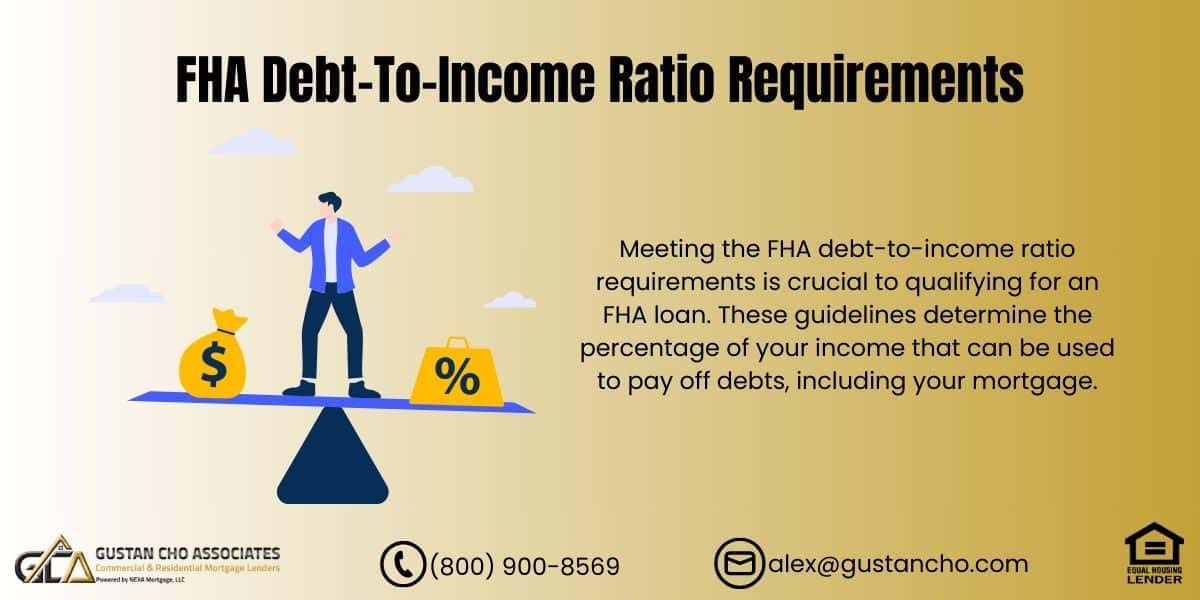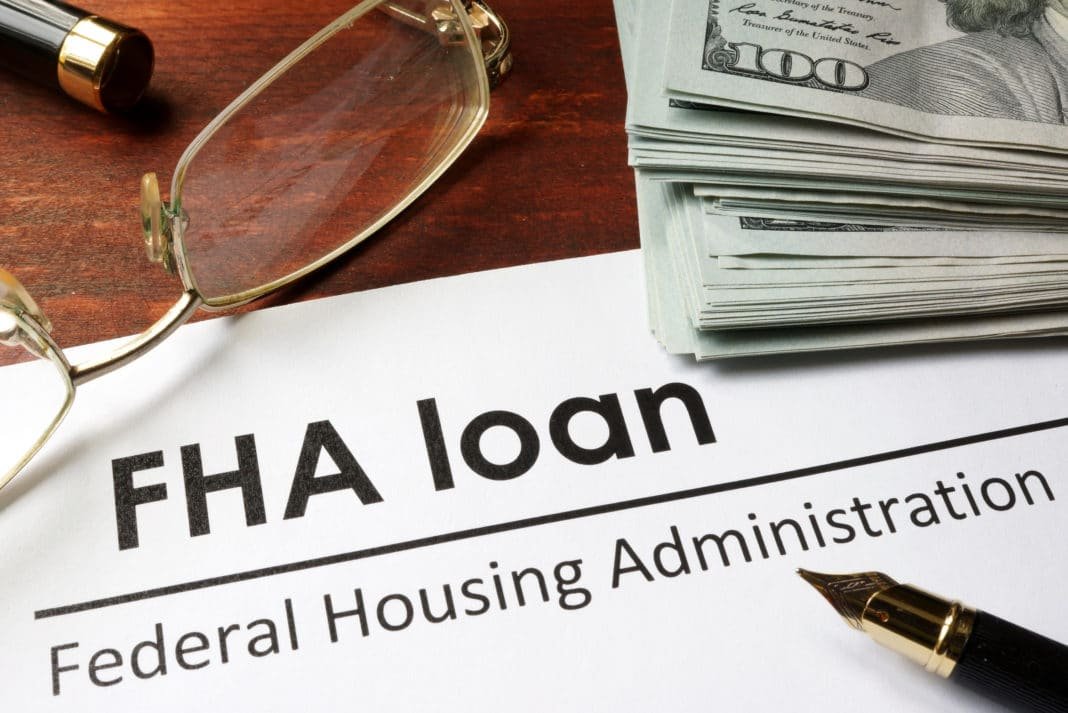FHA loan Florida Requirements

A form of mortgage loan program made available by the Federal Housing Administration in the United States is an FHA loan, which stands for “Federal Housing Administration” loan. These loans are intended to assist people and families in becoming homeowners, particularly those whose credit ratings are lower than average or who have limited finances available for a down payment. The FHA doesn’t directly lend money to borrowers; instead, it insures loans provided by approved lenders, making them less risky for lenders to offer.
Importance of understanding FHA loan requirements in Florida
Understanding the FHA (Federal Housing Administration) loan requirements in Florida, or any other state, is crucial for potential homebuyers and real estate professionals. The FHA loan program makes homeownership more accessible, especially for first-time buyers with lower credit scores and limited down payment funds. Here’s why understanding these requirements is essential in the context of Florida:
Access to Homeownership: FHA loans are designed to help individuals and families who might not qualify for conventional loans to become homeowners. By understanding the FHA loan requirements, potential buyers can determine if they meet this type of loan criteria, opening up the opportunity for homeownership that might otherwise be out of reach.
Lower Down Payment: FHA loans typically require a lower down payment than conventional loans. In Florida, where the cost of living and housing can be relatively high in certain areas, this lower down payment requirement can make it more feasible for people to afford a home.
Flexible Credit Requirements: FHA loans have credit score requirements but are often more lenient than traditional mortgages. Understanding these credit score thresholds can help potential buyers gauge their eligibility and work towards improving their credit if needed.
Loan Limits: There is a county-by-county variation in FHA loan limitations, and the local housing markets impact these limits. It’s essential to be aware of these limits in Florida to ensure that the desired property falls within the acceptable range for an FHA loan.
Mortgage Insurance Premiums (MIP): The Federal Housing Administration (FHA) mandates that borrowers pay both an upfront mortgage insurance payment (UFMIP) and an annual mortgage insurance premium (MIP). Understanding these costs is crucial for estimating the overall cost of homeownership.
Property Requirements: FHA loans have property standards that need to be met. These standards can impact the types of homes that qualify for FHA financing. Awareness of these requirements can help buyers target properties eligible for FHA loans.
Streamlined Refinancing: FHA loans also offer options for streamlined refinancing, which can be particularly valuable if interest rates drop or a homeowner’s financial situation improves over time.
Local Real Estate Market Dynamics: Understanding FHA loan requirements in Florida also means being aware of the state’s specific real estate market conditions, trends, and factors that might affect property values and availability. Making informed decisions can be aided by knowing this information.
Real Estate Professionals’ Expertise: For real estate agents and professionals in Florida, having a solid understanding of FHA loan requirements is essential to assist clients effectively. They can guide clients toward properties that meet FHA criteria and help them navigate the purchasing process.
Avoiding Pitfalls: With a proper understanding of FHA requirements, potential homebuyers might save time and effort looking at properties that are not eligible for FHA financing. They might also need to take advantage of the potential benefits that FHA loans offer.
In conclusion, understanding FHA loan requirements in Florida is vital for potential homebuyers to assess their eligibility, make informed decisions about the properties they target, and fully leverage the benefits of this program to achieve homeownership. It’s equally essential for real estate professionals to provide accurate guidance to clients and help them navigate the complexities of the FHA loan process.
Florida FHA Down Payment Requirements
Every state has the exact minimum down payment requirements for an FHA loan. 3.5% of the purchase price must be the minimum to qualify for an FHA loan. However, a 10% down payment may be needed if your credit score exceeds 580.
You can use gift money from a relative if you need more down payment.
Income requirements for FHA loan in Florida


The Federal Housing Administration (FHA) does not set a specific minimum income requirement for borrowers to qualify for an FHA loan. However, they do have guidelines for borrowers regarding debt-to-income ratios (DTI) and the ability to repay the loan.
Here are some key points related to income requirements for an FHA loan:
Debt-to-Income Ratio (DTI): FHA loans typically require borrowers to have a DTI ratio of no more than 43%. It means your monthly debt payments (including the mortgage payment) should be at most 43% of your gross monthly income.
Stable Income: While there isn’t a strict minimum income requirement, you must demonstrate a stable and reliable income source, showing you can afford the mortgage payments.
Employment History: Lenders will look at your work history to verify that you have a reliable source of income. Having at least two years of steady employment with the same employer or field is favorable.
Credit History: While not directly related to income, your credit history and credit score also play a significant role in FHA loan eligibility. A higher credit score can compensate for a slightly higher DTI ratio.
Other Requirements: Keep in mind that lenders may have internal guidelines and criteria in addition to FHA requirements. They might consider factors such as your credit score, down payment amount, and the overall financial picture.
Please note that lending guidelines can change over time and vary between lenders. It’s recommended to contact lenders directly or consult with a mortgage professional to get the most up-to-date and accurate information regarding FHA loan requirements in Florida or any other state.
Florida’s 2023 FHA Loan Requirements
These are the fundamental conditions for FHA loans in 2019. For an FHA loan to be authorized, these conditions must be satisfied. An FHA lender can assist you if you are unsure if you satisfy these requirements or have any queries.
- 3.5% down payment, or 10% if your credit score is below 580
- A minimum of two years of employment with some exclusions
- Fully substantiate your earnings over the last two years.
- 500 is the minimum FICO score needed.
- A mortgage insurance premium (MIP) is necessary for every FHA loan.
- A maximum debt-to-income ratio of 43% may occasionally be exceeded by 56%.
- You have to make that place your primary abode.
- In the previous two years, there were no bankruptcies or foreclosures.
Benefits of Florida FHA Loans
The following are some benefits of an FHA loan over a conventional loan:
- Permitted with lower credit scores
- Lower required down payment
- FHA interest rates are less expensive than standard interest rates.
- Gift money accepted
- Seller closing cost reimbursements are accepted
- Assumable loans from the FHA
- Co-signatures accepted
- Debt-to-income ratios may be higher
Florida’s top FHA lenders
Just a handful of your options include these lenders. Please remember that each lender is unique, so that you may have better options depending on your situation.
- Carrington Mortgage Services
- Bank of England Florida
- Flagstar Bank
- Quicken Loans
- Home Point Financial
- Seacoast Bank
Florida 203k FHA loans
The FHA 203k loan program is fantastic because it enables you to borrow both the money required to buy the home and the necessary funds to renovate or modify it. This program is accessible in your state as well, and we collaborate with lenders who can assist with FHA 203k loans.
Florida FHA Streamline Refinance
Existing homeowners who want to refinance for a lower rate and without some fees, such as an assessment, can do so through the FHA Streamline Refinance program. Another benefit is that you can be eligible for a discount on the premium for mortgage insurance.
Florida FHA Loan Pre-Approval Process
There is an excellent procedure to follow to get pre-approved if you’re looking for an FHA loan.
- The first step is ensuring you have the minimal down payment required to qualify.
- Check your credit and try to fix anything that is lowering your ratings.
- Obtain a copy of your two most recent tax returns.
- Obtain a copy of your pay stubs from the previous month.
- Get copies of your bank statements for the most recent two months if you still need them.
- Speak with an FHA lender about the details of your loan.
Please speak with a lender as soon as possible because they can spot chances to facilitate your FHA approval. The best time to do this is months before you begin looking for a property.
What to Look for in an FHA Lender
When deciding which lenders to deal with, we consider several factors. As you continue looking for an FHA loan, some may also be crucial to you or need to be.
An excellent FHA lender will:
- Accept credit ratings as low as 500.
- Dispense FHA 203k loans.
- Provide affordable rates and fees.
- A fantastic processing and underwriting team that collaborates directly with you during the loan application process.
- I will effectively communicate with you and give you updates along the road.










Post Comment